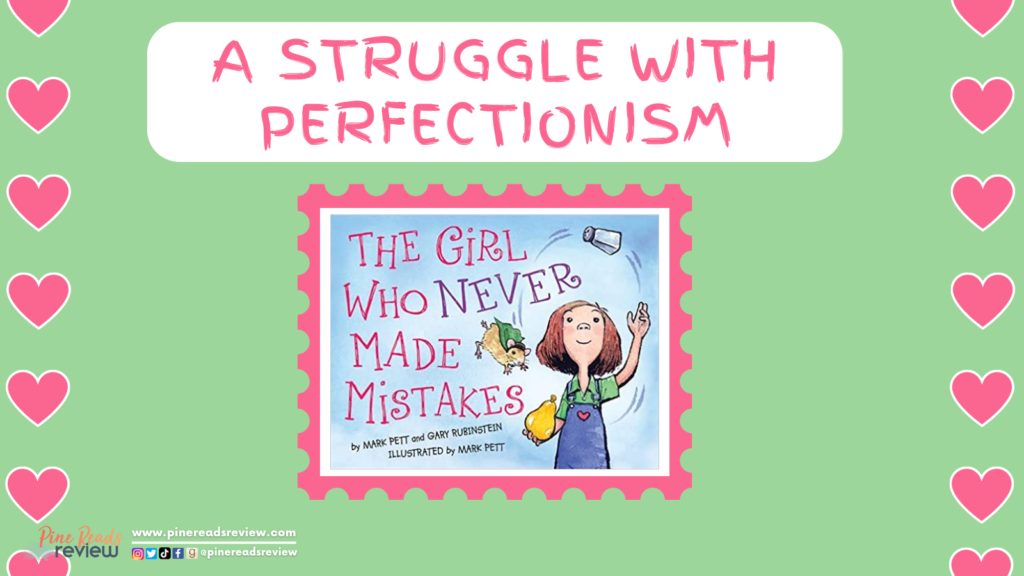
Even if it is meant for children between the ages of 4 and 8, I was intrigued to see how the topic was presented and addressed given the target audience. The book is also labeled as “A Growth Mindset Book for Kids to Promote Self Esteem” which I have never seen, or explored before for children.
While on the surface, I think the story did a great job addressing the topic of perfectionism, I think it brushed over the true struggles that are associated with being labeled as a ‘perfectionist.’ While everyone’s experience is different, the general definition of being a perfectionist is that everything can be, and has to be done a specific way without flaws. Everything must be … perfect. Beatrice’s character shows this behavior quite well in the opening of the book: her socks match, her peanut butter and jelly sandwich is made with equal parts, she didn’t forget her homework. She doesn’t make mistakes. And further, she is considered a marvel, and is adored by the townspeople for this reason. Being perfect is her identity.
As the story progresses, she (almost) makes a mistake, but is able to save the eggs from cracking and making a mess. Only, it leaves Beatrice feeling unsure of herself, and that’s carried with her throughout the rest of the day. This internal struggle was shown really well in her behavior—she doesn’t want to ice skate with her friends because there’s a possibility that she will fall and make a fool of herself, and she begins to worry about the upcoming talent show. Unlike the first almost-mistake, her act is ruined because she made the mistake of grabbing the pepper instead of the salt shaker. At that moment she doesn’t know how to react as she just made a mistake in front of a large crowd. After moments of silence she begins to laugh. Beatrice learns that it’s okay to laugh at herself, and make mistakes, and be silly, and it’s shown in the resolution of the book. It seems her perfectionism was cured.
Beatrice’s father notices her mood shift while she is worrying about the talent show, but instead of talking to her about it, he brushes her off because she is The Girl Who Never Makes Mistakes. Beatrice is left to worry in silence. And in the end, because she is no longer seen as perfect, the adoration of the town fades away, yet this is something Beatrice has become accustomed to. So how does this lack of attention affect her? It’s clear that the opinion of others matters to Beatrice because she is not willing to let herself look foolish in front of her friends while ice skating, but her emotions about the sudden lack of attention is never addressed. It seems the aftermath of Beatrice’s mistake is not explored. She seems fine with the idea that her identity is now just Beatrice, and no longer this marvelous idea of The Girl Who Never Makes Mistakes.
I think the book rushes the healing process of being a perfectionist without encouraging the conversation to understand that struggle of allowing oneself to not be perfect. Perfectionism is linked to other mental health conditions such as anxiety and depression, and the story didn’t seem to address either of these topics, or how to make progress and grow to being kind to oneself. While I think this book would be great for parents to read with their children to prevent struggles with perfectionism and show them that it is okay to laugh at yourself, I’m not sure that it would foster a growth mindset for a child who already expresses this behavior. I do think, however, it could encourage a great conversation (especially for older children within the target audience) to explore and describe their own struggles with these feelings. Perfectionism is something that takes time to unlearn, and while Beatrice is relatable, I think the story only brushes the surface of this struggle.
PRR Writer and Outreach Lead, Taylor Quinn